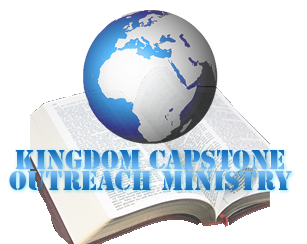You are here
MODEL OF TRANSFORMATIVE IMPACT
“Your name shall no longer be called Jacob, but Israel; for you have struggled with God and with men, and have prevailed” – Genesis 32:28
In addition to the Bethel bridge vision, Jacob’s Jabbok encounter exemplifies a MODEL of TRANSFORMATIVE IMPACT: “And He said, “Your name shall no longer be called Jacob, but Israel; for you have struggled with God and with men, and have prevailed” (Gen.32:28). His initially defective, but subsequently changed personality, illustrates how even individuals with shortcomings can be used by God for great purposes and how faith can lead to significant transformation. His earlier deceptive and manipulative nature was followed by his eventual growth, reconciliation with Esau, and ultimate transformation into Israel.
“Then Jacob was left alone; and a Man wrestled with him until the breaking of day.” (v.22). Jacob’s wrestling with an angel representing God resulted in his change of name to Israel, which means “he struggles with God” or “God’s struggle.” This new name implied a new identity of one who prevailed with God, resulting in a blessing. The encounter also impacted Jacob’s physical form. The wrestling left him with a limp, a physical reminder of his struggle and God's intervention. It was also a turning point in his spiritual journey, demonstrating the power of perseverance and the intimacy possible with God.
Beyond the physical, spiritual wrestling is a path to transformation. Jacob's unwavering insistence on a blessing from God, even after being wounded, shows the increasing depth of his faith and desire for a closer relationship with God. The story emphasizes the significance of prayer, even during difficult times. Wrestling with God in prayer and intercession in the midst of struggle, can produce profound character change and blessing. The Jabbok encounter portrays how a divinely orchestrated struggle can lead to deeper faith, character development, and a closer relationship with God.
On the Journey of Transformative Impact, there are seasons we’ll need to be encouraged to embrace challenges and struggles for growth, recognizing that God often uses them to shape character, deepen faith, and draw people closer to Him.For Jacob, the encounter forced him to confront his past and embrace a new identity, rooted in divine struggle and perseverance.
After years of separation and fear, Jacob reconciled with his brother, Esau, showing the force of forgiveness and reconciliation, in spite of past animosity. His legacy extends beyond personal transformation, to becoming the patriarch of the twelve tribes of Israel. Jacob’s journey, from a deceptive schemer to a patriarch of a nation, illustrates God's grace to redeem individuals and use them for His purposes, despite defective beginnings. It shows that God can use even flawed individuals to accomplish His purposes, while faith, reconciliation, and a willingness to change can lead to significant personal and societal impact.
Adetokunbo O. Ilesanmi (Meditations)
- Log in to post comments
Latest Tweets
No tweets to display now.
Our Vision
The vision of KCOM is that:
"the earth shall be filled with the knowledge of the Glory of the Lord as the waters cover the seas" (Habakkuk 2:14).
"But we all, with open face beholding as in a glass the Glory of the Lord, are changed into the same image from glory to glory even as by the Spirit of the Lord" (2 Corinthians 3:18).
Copyright © 2013–2026 Kingdom Capstone Outreach Ministry. | Designed by ZoeWox Technologies
